Improve counting skills Easy Worksheets for Ages 3-8
7 filtered results
-
From - To
Enhance your child’s counting skills with our collection of easy worksheets, designed specifically for ages 3-8. These engaging and interactive resources make learning fun, while providing ample practice in number recognition and counting. Each worksheet features colorful illustrations and age-appropriate exercises that help develop essential math skills. Whether your child is just starting to learn numbers or looking to refine their counting abilities, our worksheets are perfect for home or classroom use. Foster confidence and excitement in math as your child progresses through each level, making counting an enjoyable and rewarding experience. Explore our worksheets today and watch counting skills flourish!
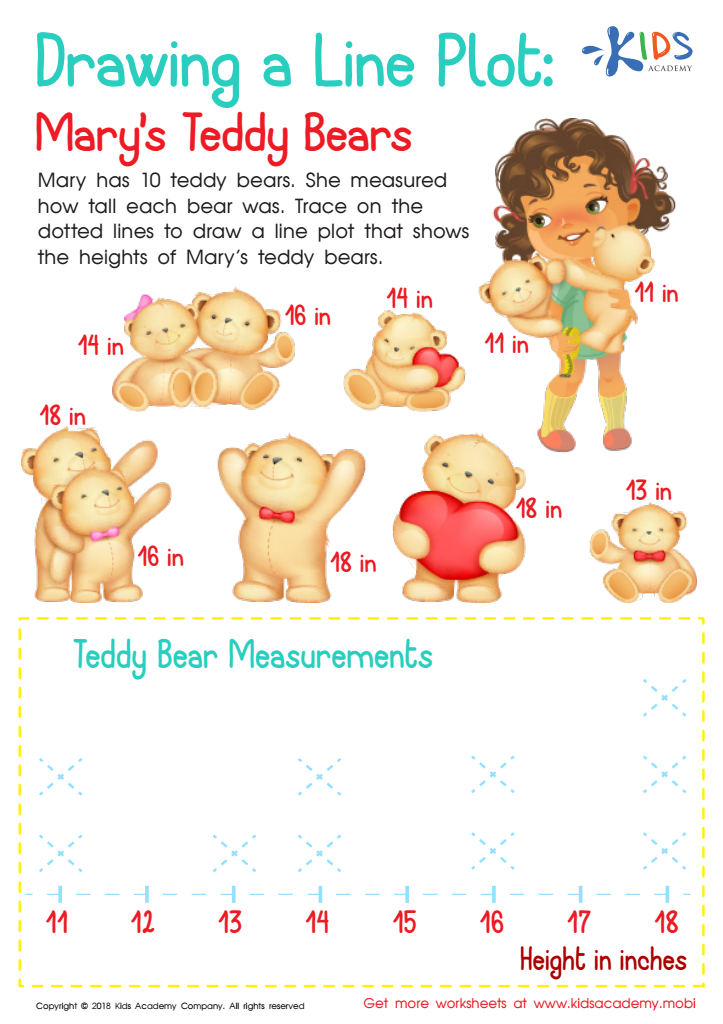

Drawing and Line Plot: Mary's Teddy Bears Worksheet
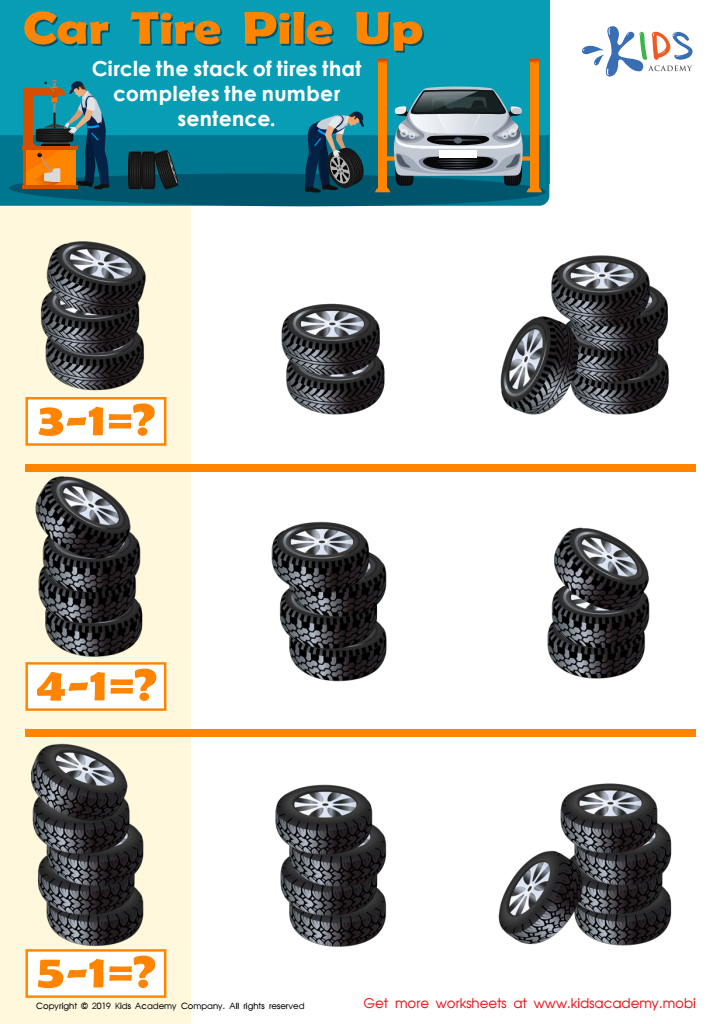

Car Tire Pile Up Worksheet
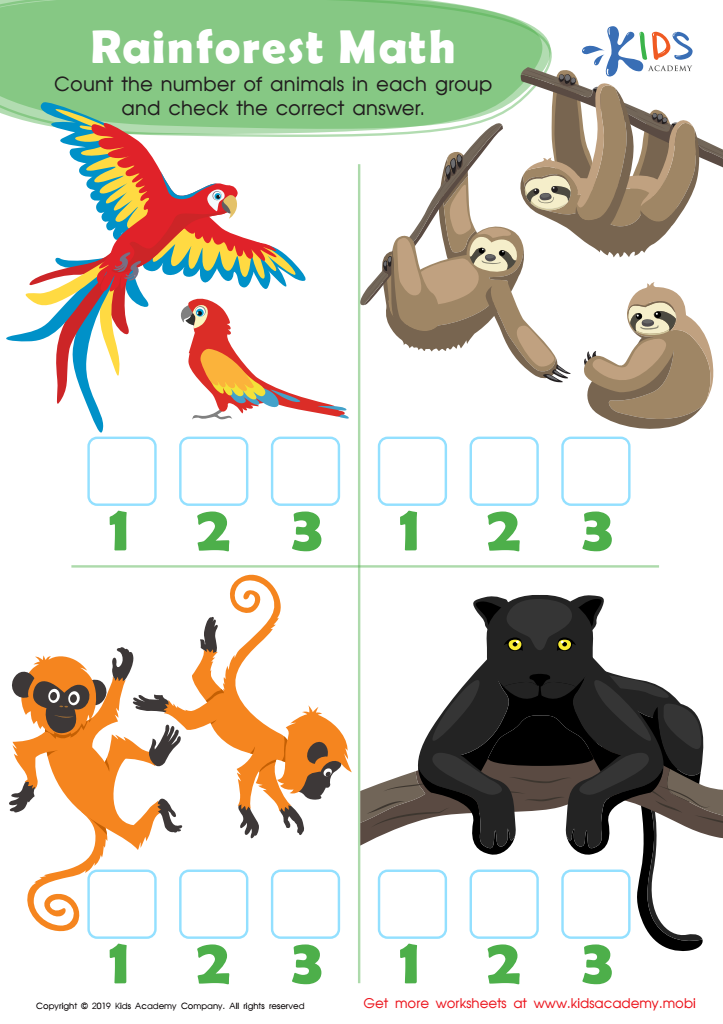

Rainforest Math Worksheet
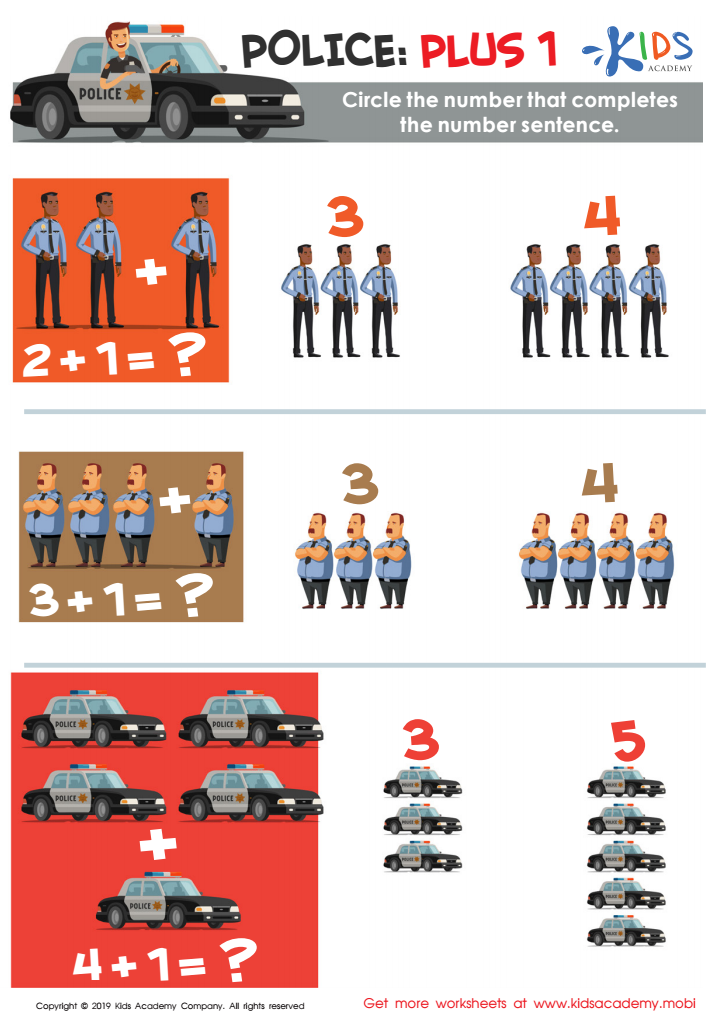

Police: Plus 1 Worksheet
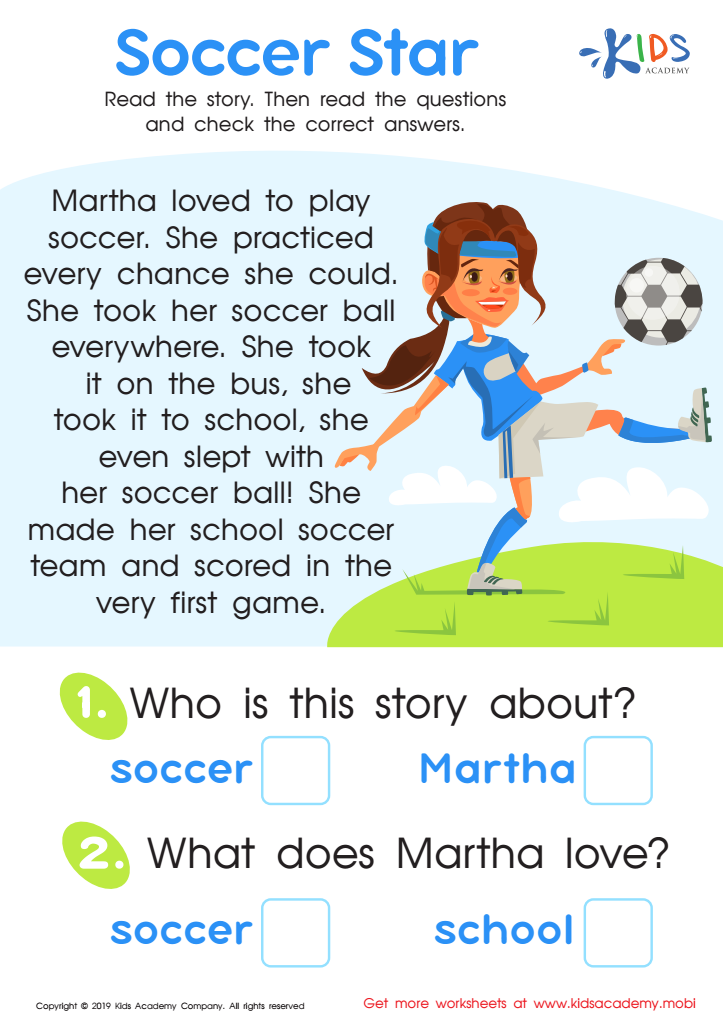

Soccer Star Worksheet
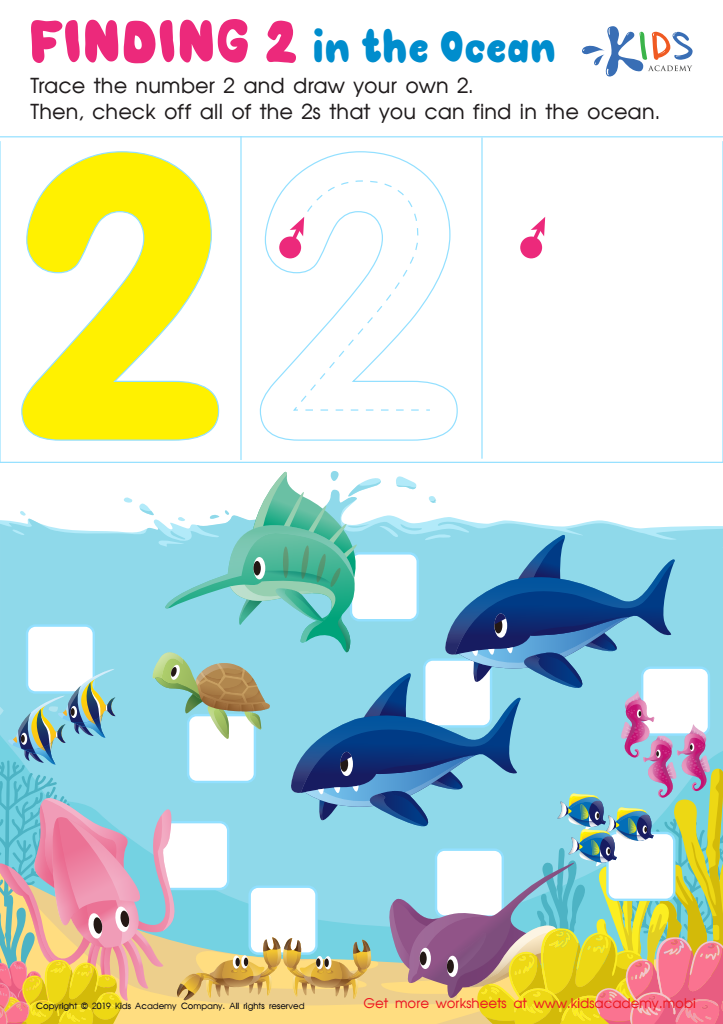

Finding 2: In the Ocean Worksheet
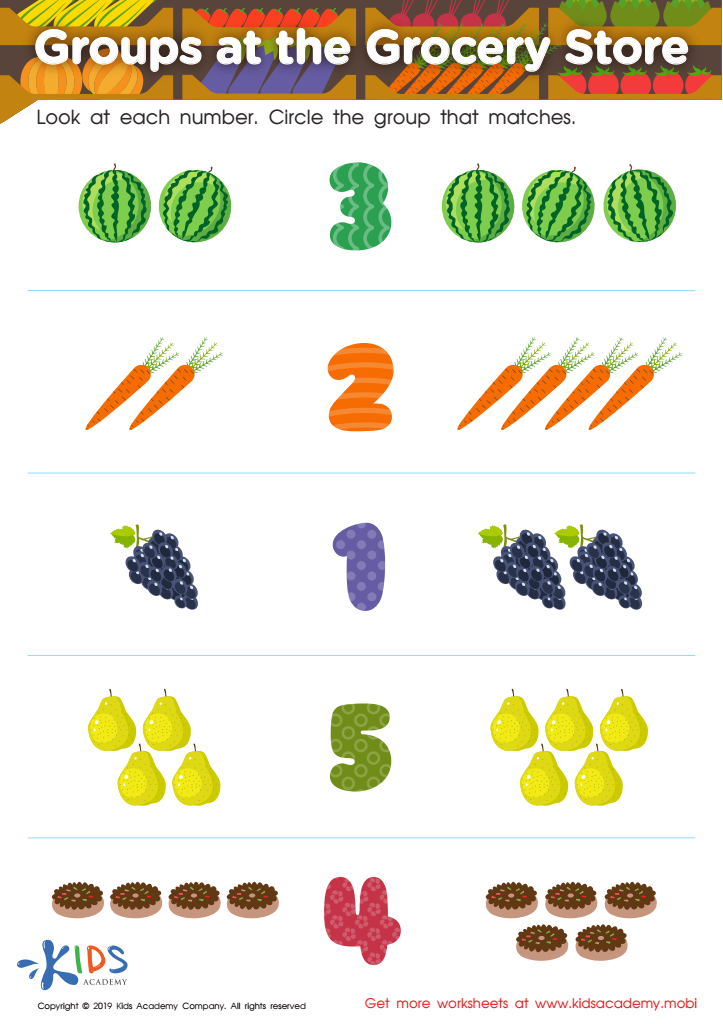

Groups at the Grocery Store Worksheet
Improving counting skills in children aged 3-8 is critical for their cognitive development and future academic success. At this age, children's brains are highly neuroplastic, making them particularly receptive to learning foundational skills. Counting is not just a basic math function; it lays the groundwork for essential concepts in mathematics, such as addition, subtraction, and number sense.
Parents and teachers should care about fostering counting skills because strong numeracy skills directly correlate with later math proficiency. Children who struggle with counting often face challenges in more complex math tasks, which can lead to a lack of confidence and enjoyment in learning. These early counting skills also enhance problem-solving abilities, critical thinking, and even language development, as children begin to understand sequences and relationships among numbers.
Moreover, counting activities can improve fine motor skills, promote social interaction, and make learning enjoyable through games and hands-on experiences. Engaging children in counting through daily activities, engaging stories, and interactive play not only makes learning fun but also integrates mathematical concepts seamlessly into their everyday lives. By emphasizing these skills early on, parents and teachers set a foundation for lifelong learning and success in the world of mathematics.
 Assign to My Students
Assign to My Students





















